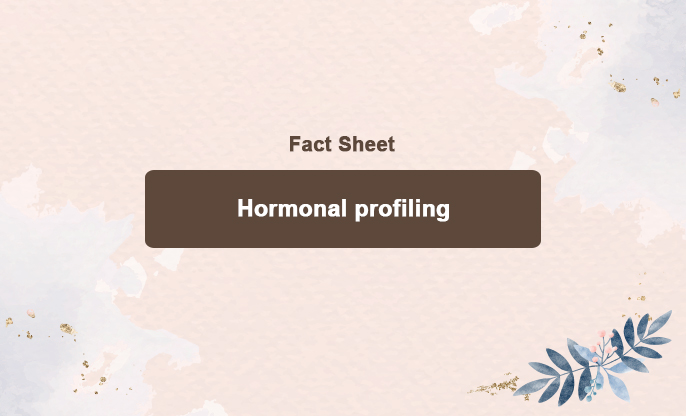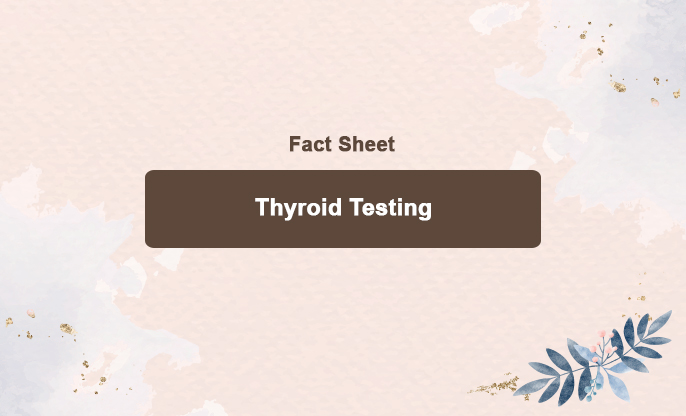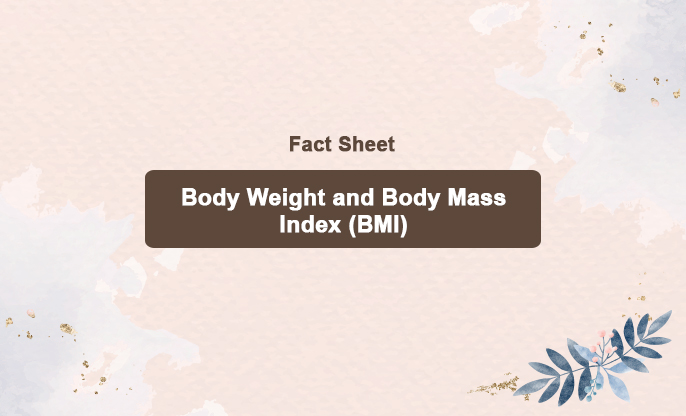
What is this test?
Hormonal profiling involves testing various hormones in the body to assess the endocrine system's function and identify any imbalances or disorders. Hormones regulate numerous physiological processes, including growth, metabolism, reproduction, and mood. Hormonal profiling can help diagnose conditions like thyroid disorders, diabetes, reproductive issues, and adrenal gland disorders.
Common Hormones Tested in Hormonal Profiling
Thyroid Hormones:
Thyroid-Stimulating Hormone (TSH): Regulates thyroid hormone production.
Free T4 (Thyroxine) and Free T3 (Triiodothyronine): Active thyroid hormones.
Sex Hormones:
Estrogen: Important for reproductive and sexual health in women.
Progesterone: Regulates menstrual cycle and pregnancy.
Testosterone: Primary male sex hormone, also present in women in smaller amounts.
Follicle-Stimulating Hormone (FSH) and Luteinizing Hormone (LH): Regulate reproductive processes.
Adrenal Hormones:
Cortisol: Stress hormone that regulates metabolism, immune response, and more.
Adrenaline (Epinephrine) and Noradrenaline (Norepinephrine): Regulate the body's fight-or-flight response.
Pancreatic Hormones:
Insulin: Regulates blood sugar levels.
Glucagon: Raises blood glucose levels.
Pituitary Hormones:
Growth Hormone (GH): Stimulates growth and cell reproduction.
Prolactin: Regulates lactation and reproductive functions.
Adrenocorticotropic Hormone (ACTH): Stimulates cortisol production.
How is it done?
Blood Tests: The most common method for hormonal profiling. Blood samples are collected and analyzed in a laboratory.
Saliva Tests: Sometimes used for measuring hormones like cortisol and reproductive hormones.
Urine Tests: 24-hour urine collections can provide information on certain hormones and metabolites.
Is this routine or specific?
Hormonal profiling is generally considered a specific test rather than a routine one.
Symptomatic Individuals: Hormonal profiling is usually conducted when a patient presents symptoms that suggest a hormonal imbalance or endocrine disorder. These symptoms might include fatigue, weight changes, irregular menstrual cycles, infertility, mood swings, or unusual hair growth.
Diagnosis of Specific Conditions: It is used to diagnose or rule out specific conditions such as thyroid disorders, diabetes, adrenal gland disorders, reproductive issues, and growth abnormalities.
Monitoring Treatment: Patients already diagnosed with a hormonal imbalance or endocrine disorder might undergo hormonal profiling to monitor the effectiveness of their treatment and make necessary adjustments.
Infertility Assessments: Hormonal profiling is often part of fertility evaluations for both men and women.
Postmenopausal Symptoms: Women experiencing menopausal or postmenopausal symptoms might have their hormone levels checked to manage these symptoms effectively.
When should it be done (frequency)?
The frequency of hormone profiling depends on several factors, including the individual’s health status, symptoms, and the specific condition being monitored.
General Health Monitoring (No Symptoms):
Once a year: For women in their reproductive years without any specific health concerns, an annual hormone profile can be done during a routine check-up.
PCOS/PCOD:
Every 6-12 months: For women diagnosed with PCOS/PCOD, hormone profiling should be done every 6 to 12 months, or more frequently if symptoms change or worsen.
Menopause:
Every 6-12 months: During perimenopause and menopause, hormone profiling may be done annually or bi-annually to monitor hormone levels and manage symptoms.
Fertility Treatment:
As advised by a doctor: Hormone levels are often checked multiple times during a fertility treatment cycle to monitor and adjust treatment as needed.
Thyroid or Other Hormonal Disorders:
Every 3-6 months: For conditions like thyroid disorders or other endocrine issues, hormone levels may need to be monitored more frequently, depending on treatment and symptom stability.
Hormone Replacement Therapy (HRT):
Every 6 months: For women on HRT, hormone levels should be monitored every 6 months to ensure the therapy is effective and safe.
It’s essential to consult with a healthcare provider to determine the appropriate frequency of hormone profiling based on individual health needs.
What do the results indicate or eliminate?
The results of hormone profiling can indicate or eliminate several potential health issues, depending on the hormones tested. Here’s what some common hormones and their levels can indicate:
1. Estrogen (Estradiol, Estrone, Estriol)
High Levels:
May indicate estrogen dominance, which can be associated with conditions like PCOS, endometriosis, or certain types of cancers.
Can also suggest a higher risk of blood clots or other cardiovascular issues.
Low Levels:
May indicate menopause, ovarian insufficiency, or issues with the pituitary gland.
Associated with symptoms like hot flashes, night sweats, and osteoporosis.
2. Progesterone
High Levels:
Typically occurs in the luteal phase of the menstrual cycle or during pregnancy.
Unusually high levels outside these conditions might indicate a luteal phase defect or, in rare cases, a progesterone-secreting tumor.
Low Levels:
May indicate luteal phase defect, which can affect fertility and menstrual cycle regularity.
Low levels in early pregnancy may suggest a risk of miscarriage.
3. Testosterone (Total and Free)
High Levels:
Can indicate conditions like PCOS, adrenal hyperplasia, or androgen-secreting tumors.
Associated with symptoms like hirsutism (excessive hair growth), acne, and irregular periods.
Low Levels:
May indicate hypogonadism, aging, or certain chronic diseases.
Associated with decreased libido, fatigue, and mood changes.
4. Thyroid Hormones (TSH, T3, T4)
High TSH/Low T3 and T4:
Indicates hypothyroidism, which can lead to weight gain, fatigue, and depression.
Low TSH/High T3 and T4:
Indicates hyperthyroidism, which can cause weight loss, anxiety, and heart palpitations.
Normal TSH with abnormal T3/T4:
Suggests subclinical thyroid issues or a pituitary gland problem.
5. Follicle-Stimulating Hormone (FSH)
High Levels:
May indicate ovarian failure, menopause, or low ovarian reserve.
Low Levels:
Can suggest pituitary disorders or issues with ovarian function.
6. Luteinizing Hormone (LH)
High Levels:
Typically elevated during the ovulatory phase.
Persistent high levels may indicate PCOS or primary ovarian insufficiency.
Low Levels:
Suggests issues with the pituitary gland or hypothalamus, potentially affecting fertility.
7. Cortisol
High Levels:
Indicates possible Cushing’s syndrome, chronic stress, or adrenal gland disorders.
Low Levels:
May indicate Addison’s disease or adrenal insufficiency.
8. Prolactin
High Levels:
Can indicate a prolactinoma (pituitary tumor), hypothyroidism, or certain medications’ side effects.
Associated with irregular menstrual cycles, galactorrhea (milk production not related to breastfeeding), and infertility.
Low Levels:
Less common but could suggest pituitary gland dysfunction.
9. Insulin
High Levels:
May indicate insulin resistance, pre-diabetes, or type 2 diabetes.
Associated with metabolic syndrome and PCOS.
Low Levels:
Could indicate hypoglycemia or a pancreatic issue.
10. DHEA-S (Dehydroepiandrosterone Sulfate)
High Levels:
May indicate adrenal hyperplasia, PCOS, or adrenal tumors.
Low Levels:
Suggests adrenal insufficiency or aging.
What Results Can Eliminate:
Normal Levels Across Hormones:
Can eliminate certain conditions like PCOS, thyroid disorders, adrenal disorders, and some forms of infertility.
Suggests that symptoms may not be hormonally driven and may require further investigation into other causes.
What Results Can Confirm:
Abnormal Levels:
Help confirm diagnosis of hormonal imbalances, such as hypothyroidism, hyperthyroidism, PCOS, menopause, adrenal insufficiency, etc.
Guide treatment options like hormone replacement therapy, medications, or lifestyle changes.



















